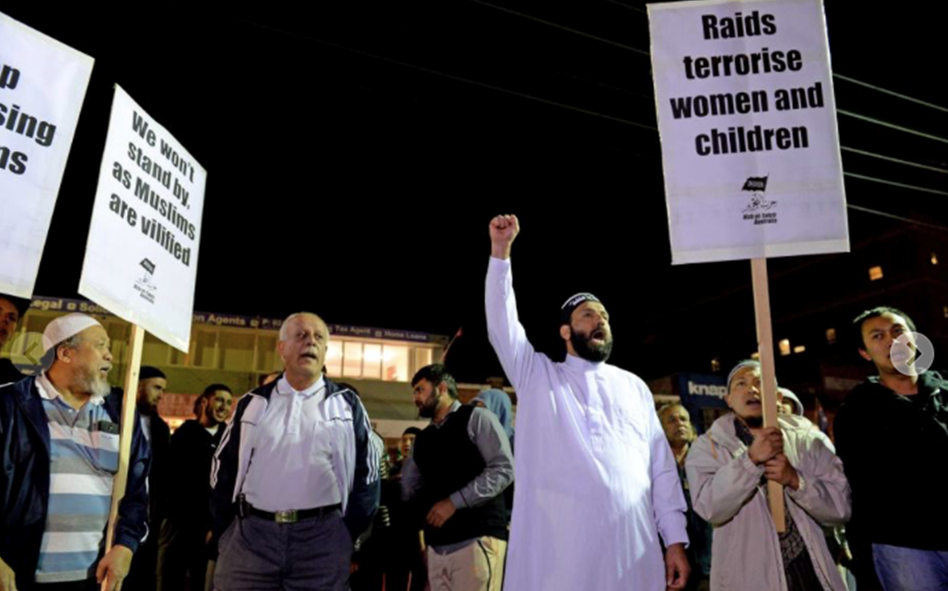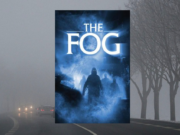
by Mary W Maxwell
Some say Australia needs a Bill of Rights. Gumshoe hereby invites any reader to propose a right. Our journalistic staff (if you could call it that) seems to be in a jocular mood at the moment (no reason given), so we don’t forbid you to send a jocular offering. Still, serious ones would be especially appreciated.
For historical purposes, I am going to list, below, the United States rights – never mind the apparent lull in their enforcement nowadays. These ten rights went into the US Con as amendments thereto. For an amendment to get in, three-fourths of the states must ratify. In 1791, eleven of the 13 colonies, oops, states, said “Sure, OK, whatever” and no one ever regretted it.
Note: the 1787 draft constitution had contained only one right: the right to habeas corpus. I am told that dear George Mason at the Philadelphia Convention said “If you don’t include that one, I ain’t signin’.”
May we begin with a song? This one is written by Gumshoe’s resident lyricist (who knows no shame, if you recall the Mal Hughes “Return to Sender” Elvis cover). This is called “The Right To Speak Freely,” and is sung to the tune of “The Twelve Days of Christmas.”
Instead of starting with “On the first day of Christmas my true love sent to me, a partridge in a pear tree,” you start with: IN THE FI-IRST AMENDMENT THE FRAMERS GAVE TO ME THE RIGHT TO-O SPE-EAK FREE-LY.
Then, instead of “On the second day of Christmas my true love sent to me, two turtle doves, and a partridge in a pear tree” you go: IN THE SEC-OND AMENDMENT THE FRAMERS GAVE TO ME A CANNISTER OF MACE, AND THE RIGHT TO SPEAK FREELY.
The “cannister of Mace” routine being the right to bear arms. (Though let me tell you I learned just the other day that there is a personal nuclear weapon you can purchase called The Davy Crockett gun!)
Time is short. Let’s go right to the end of the song and work down the ten rights, as you would do with “On the tenth day of Christmas my true love sent to me, 10 lords a- leaping, 9 ladies dancing, 8 maids a-milking, 7 swans a-swimming.” But now:
IN THE TE-ENTH AMENDMENT THE FRAMERS GAVE TO ME: ALL RESIDUAL POWERS, RIGHTS BEYOND THOSE LISTED, NO CRUEL OR UNUSUAL, “I’ll SUE THE BASTARDS,” HEAPS OF DUE PROCESS, “I’LL NEV-ER SING,” “STAY OUT OF MY STUFF,” NO DUTY TO BILLET, A CANNISTER OF MACE, AND THE RIGHT TO-O SPE-EAK FREE-LY!
If you wish the 18th century translation, it’s here:
The Bill of Rights
I. Congress shall make no law respecting an establishment of religion, or prohibiting the free exercise thereof; or abridging the freedom of speech, or of the press; or the right of the people peaceably to assemble, and to petition the government for a redress of grievances.
II. A well regulated militia, being necessary to the security of a free state, the right of the people to keep and bear arms, shall not be infringed. III. No soldier shall, in time of peace be quartered in any house, without the consent of the owner, nor in time of war, but in a manner to be prescribed by law.
IV. The right of the people to be secure in their persons, houses, papers, and effects, against unreasonable searches and seizures, shall not be violated, [isn’t that a hoot?] and no warrants shall issue, but upon probable cause, supported by oath or affirmation, and particularly describing the place to be searched, and the persons or things to be seized.
V. No person shall be held to answer for a capital, or otherwise infamous crime, unless on a presentment or indictment of a grand jury, except in cases arising in the land or naval forces, or in the militia, when in actual service in time of war or public danger; nor shall any person be subject for the same offense to be twice put in jeopardy of life or limb; nor shall be compelled in any criminal case to be a witness against himself, nor be deprived of life, liberty, or property, without due process of law; nor shall private property be taken for public use, without just compensation.
VI. In all criminal prosecutions, the accused shall enjoy the right to a speedy and public trial, by an impartial jury of the state and district wherein the crime shall have been committed, which district shall have been previously ascertained by law, and to be informed of the nature and cause of the accusation; to be confronted with the witnesses against him; to have compulsory process for obtaining witnesses in his favor, and to have the assistance of counsel for his defense.
VII. In suits at common law, where the value in controversy shall exceed twenty dollars, the right of trial by jury shall be preserved, and no fact tried by a jury, shall be otherwise re-examined in any court of the United States, than according to the rules of the common law.
VIII. Excessive bail shall not be required, nor excessive fines imposed, nor cruel and unusual punishments inflicted.
IX. The enumeration in the Constitution, of certain rights, shall not be construed to deny or disparage others retained by the people.
X. The powers not delegated to the United States by the Constitution, nor prohibited by it to the states, are reserved to the states respectively, or to the people.
— Mary W Maxwell is assistant editor of GumshoeNews. She offers the above song as public domain. If you perform it publicly please send her a recording, at MaxwellForSenate.com






























How about the Bill of Rights V and VI in regard to Port Arthur. Wipe out against the Government as Martin Bryant would not be required to plead. A grand jury would have had to lay the charges wanted by the government. Giving Bryant a chance of a trial.
This is a letter that my youngest son and I sent to Charles Heller of JPFO back in 2011:
“We have visited the JPFO website for the last 9 years and it has been a major help in withstanding an increasingly oppressive governmental system. The only problem is that each and every article is peppered by the word “right” or “rights”, and so far as we are concerned, said word is the very seat of oppression.
We maintain that:
If the universal human desire to be “as gods” is not kept in check we fall into the belief that “somebody owes me”. We are then stuck with the morning-after angst of “somebody owns me”.
Freedom cannot be regained by re-shuffling the enslavement cards. Allowing “god-given rights” to be conferred by an invisible somebody is just as misconceived as attributing a “divine right” to a particular somebody or something. Thinking outside the “rights” box can only be achieved via specific training.
There is no mention of “rights” in any Judaic or Christian scripture.
The Commandments testify that freedom only comes via service.
The United States has less restrictive weapons legislation than the rest of the world simply because a significant portion of the population are descended from those who were genuinely committed to such service.
The so-called founding fathers were no more morally grounded than the British rulers of the day. The motive behind the second amendment was etched in the letter. Those who cling to it would do well to remember that the Roman empire was also held together by a system of tenuous concessions”.
He just didn’t get it
“There is no mention of ‘rights’ in any Judaic or Christian scripture.The Commandments testify that freedom only comes via service. The United States has less restrictive weapons legislation than the rest of the world simply because a significant portion of the population are descended from those who were genuinely committed to such service.”
I sure never heard it put that way before, Berry. You slay me every time.
I don’t approve of the ‘rights’ idea either, but it sure did a lot of good to peeps who had not even conceived that they had any.
My disapproval stems from the fact that peeps don’t see that it is their willingness to stick up for each other that makes a right a right. And thus if they have stopped sticking up for each other — as we have today — ain’t no rights happenin’.
On that note, Fiona Barnett asks her audience at pedophilesdownunder.com to please help her out in regard to her application for Victims Compo Fund.
Typo. I see that Amendment III is stuck onto II above, but I don’t want to ask HB to fix it as she is — wait for it — watching the Royal Wedding.
I have watched the Royal Wedding, interesting to see how many blacks were all part of the ceremony, although she is said to be black its a shade of lighter black, I think she is not black other than some one who is has been in the sun, Harry ould not go to a real blue black, you can push the dummy to far or over the top, Harry has to observe protocol.
I think that the ten US amendments listed above are a very fine place to start on a Bill of Rights.
I would like to suggest another amendment, not to any Bill of Rights, but to the room where these oxygen thieves hold their daily talk fest in the Houses of Parliament.
In the center of the chamber a full life size, fully functional guillotine and every morning a two minute silence for them to contemplate the import and meaning of such a device, before they start making decisions on our part.
That may help them to make some correct decisions on our behalf, rather than thinking only of their own fat wallets.
ALEX, GO TO THE HEAD OF THE CLASS.
Many years ago there was a conspiracy that the US had manufactured many guillotines and coffins for the masses. Could import one of those.
The coffin idea is cheaper than the guillotine.
And I know just the song they could play during the mandatory 2-min silence:
“And he’s all laid our to rest ,with his hands acrosst his chest. His fingernails have never been so clean”:
.
https://www.youtube.com/watch?v=Euq8Z4l6Iwk
I dunno if this comes under habeas corpus – but I remember when there was such a thing as the presumption of innocence, – im all for not having drunken drivers on the roads, but i think there has to be a better way than pulling anyone and everyone over when they are not breaking any laws, to make them prove their innocence.
and how long before the latest show your papers laws at airports ( i presume they can only get away with that because an airport is a private facility? ) spreads to shopping centres sports stadiums – then public streets and private homes?
maybe not a right as such.. but an amendment that was proposed in the USA ~100 years ago, and often resurfaces, again in 2013 but didn’t pass muster.. a requirement for those contemplating our involvement in future wars that any and all such involvement be resolved via a vote and all those that vote yes, be required to enlist.
https://www.huffingtonpost.com.au/entry/amendment-war-national-vote_n_3866686
https://www.constitutionfacts.com/us-constitution-amendments/proposed-amendments/
The following is a very limited list of some of those proposed amendments that never left the halls of Congress:
1876: an attempt to abolish the United States Senate
1876: the forbidding of religious leaders from occupying a governmental office or receiving federal funding
1878: an Executive Council of Three should replace the office of President
1893: renaming this nation the “United States of the Earth”
1893: abolishing the United States Army and Navy
1894: acknowledging that the Constitution recognizes God and Jesus Christ as the supreme authorities in human affairs.
1912: making marriage between races illegal
1914: finding divorce to be illegal
1916: all acts of war should be put to a national vote. Anyone voting yes had to register as a volunteer for service in the United States Army
1933: an attempt to limit the personal wealth to $1 million
1936: an attempt to allow the American people to vote on whether or not the United States should go to war
1938: the forbidding of drunkenness in the United States and all of its territories
1947: the income tax maximum for an individual should not exceed 25%
1948: the right of citizens to segregate themselves from others
1971: American citizens should have the alienable right to an environment free of pollution.
I am fully in support of all ten.
Is there any way we could add another one that would prevent the government, having already extracted from me:
Income tax
Sales tax
Council rates
Emergency Services Levy
Driver’s license fee
Car rego
3rd party;
from paying police officers to hide behind trees to catch me speeding to extract more $ from me in the false name of the nanny-state?
Before we all dash off to Canberra to demand a Bill of Rights, perhaps we should find out what the US Bill of Rights actually was.
In the events leading up to the plutocrat’s appropriation of America from the British royalty (in effect, establishing their own more discreet royalty and aristocracy), most citizens imagined the constitution-to-be to be inspired by the works of Thomas Paine.
Establishing a proud tradition of feeble literacy (the US is 39th on the global literacy scale), pretty much nobody bothered to read the original draft constitution (which was very different to the later official draft constitution). The plutocrats commissioned James Madison to expunge all of Paine’s words. Two decades or so later, somebody realised what had been done and a furor erupted. This was the genesis of the ten amendments. When it was finally realised that the Bill of Rights only protected the elite, another 18 (or so?) were sporadically proposed.
If one reads Paine’s ‘The Rights of Man’, it is clear that not one iota of the rights of man has survived. Any such proposal today would be condemned as pure communism or socialism or populism or anarchy, or all of the above. Judging by the inappropriate use of such terms today it is doubtful if anyone in America even knows what the terms mean. Actually, there is no difference between populism, democracy, or anarchy.
Back to the concept of Bill of Rights… what is the point? They protect nobody, except on paper.
What we do need is the right to be fully informed and to then determine our own future. This is the fundamental meaning of democracy, populism, and anarchy. As Thomas Paine summarised it: “All authority resides in the people.”
Anxious to permit such a horrendous scenario, the elite constantly throw red herrings and blind alley options at us… republicanism; constitutional monarchy, theocracy, and so on. Judging by the republic referendum of two decades ago the Australian electorate, even though anti-monarchy, rejected republicanism. They were not fooled by the pseudo-choice.
We don’t need another bill of rights, we already have one. It comes in to australian law via the imperial acts application act 1980 Vic. Bill of Rights 1688. “All fines and forfeitures before conviction in a court of law are null and void.. I think Section 8, paragraph 12
The Constitution of the Commonwealth of Australia is a dog’s breakfast in the sense that it was an arrangement with the people of the several colonies and territories and the founding nation, being Britain, to change the political structure, being initiated by petition by the people of the colonies, to form a single colony under an Act of the UK parliament.
To this day it is still an Act of the UK parliament.
The process of arriving at what would be adopted as the Constitution of the Commonwealth of Australia is recorded in the annotated works of Quick and Garran, which explains the intent of the contributing framers of the Constitution.
That Constitution was ratified by the expressed vote of the people.
And in Quick and Garran they unequivocally state that sovereignty resides with the people.
With regard to a Bill of Rights, it is worth considering the same for the jurisdiction of the united States of America.
The Declaration of Independence is essentially a document that forms a trust.
Where it asserts that; “We hold these truths to be self-evident, that all men are created equal, that they are endowed by their Creator with certain unalienable rights, that among these are life, liberty, and the pursuit of happiness,” it acknowledges that man has a Creator ( there goes the tenuous fantasy that life was a happenstance event! ).
The ironical hypocrisy was that slaves did not seem to have these same unalienable rights, and many of the original signers of the document were slave owners.
The next line in the Declaration states: “That, to secure these rights, governments are instituted among men, deriving their just powers from the consent of the governed.”
So man creates government to serve the people, and the founding documents and their subsequent amendments define how government goes about this undertaking.
The people never gave up their unalienable rights, (although that seems not to be the case today, particularly for Melbournians) and unalienable means those rights cannot be removed by the body politic which was created by the people.
Neither is it possible for the government to grant unalienable rights as government did not create the people.
Government can only grant statutory rights, and it can “ungrant” them too.
For those who derive their political form as an inheritance by a cloning process from the UK, they too can claim unalienable rights as a consequence of the Coronation Oath, where the Sovereign (who was appointed by the UK Parliament) binds herself to the precepts in the KJV bible, and from that magnificent jurisdiction called equity, which is known as being the expression of the King’s conscience to ensure that the people receive that which is fair, just and righteous.
So how is it that a Melbournian cop can grab someone by the throat and slam them to the ground for the heinous crime of not wearing a mask ?
Maybe the cop is relying on the assumption that the person is pretending to be something the government created, specifically that someone identifies as being the legal fiction represented by the legal title in the form of a Birth Certificate.
If you want to know where you can find your unalienable rights, then they are found in the equity jurisdiction where the living people are found.
The relationship you have with your fellows and the body politic (and its creations) is in the form of a trust, or many trusts, of which only equity has exclusive jurisdiction.
How is it that equity is not in our face.
Because we have been conditioned to only see the shadow cast by equity, which is the legal jurisdiction.
I am domiciled on Tasmania, and only fictions can use the current Supreme Court Act of 1932.
There is no facility for a man or woman to access the inherent equity jurisdiction of the Court under that Act except by colour of the law.
But the Acts Interpretations Act 1931 defines the Supreme Court to be:
“Supreme Court shall mean the Supreme Court of Tasmania, and shall include the Supreme Court as first constituted under letters patent under the Great Seal of the United Kingdom, dated 13th October 1823;”
Notice how the 2 cited Acts have a common era of origin.